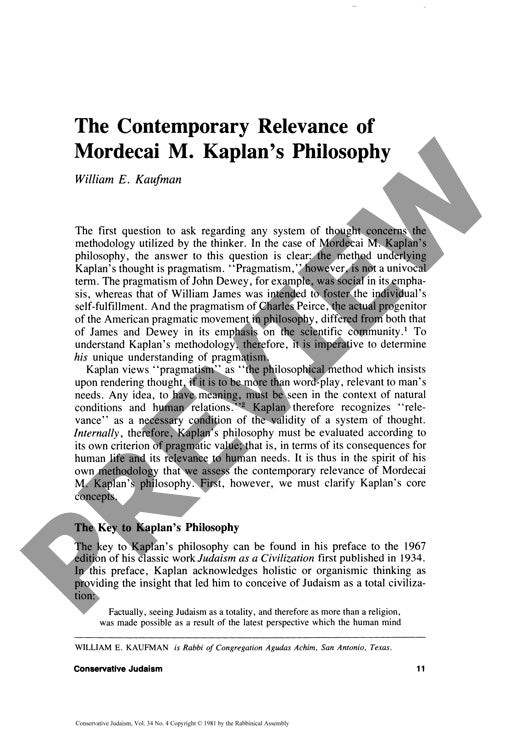The Contemporary Relevance of Mordecai M
Couldn't load pickup availability
Mordecai Kaplan's philosophical system offers a compelling bridge between naturalism and religious transcendence that remains relevant for contemporary rationalistic thinkers. Through philosophical analysis, Kaplan's approach emerges as a form of contextual pragmatism closely aligned with John Dewey's social emphasis. At the heart of his major contributions—Judaism as a total civilization, collective consciousness, and transnaturalist theology—lies holistic or organismic thinking. Drawing on Emile Durkheim's sociological insights, Kaplan developed the principle that "the whole is more than the sum of its parts," using this foundation to construct his distinctive transnaturalism. This philosophical framework mediates between reductive naturalism and supernaturalism by identifying the "more" or "plus" aspect of nature as divine transcendence. Contemporary parallels appear in the work of Arthur Koestler and Carl Rogers, who similarly employ organismic principles. While both naturalist and supernaturalist critics may challenge Kaplan's position, his enduring contribution lies in developing a concept of divine transcendence that remains within natural law boundaries. His philosophy continues to resonate with those seeking transcendence without abandoning empirical methodology, though it may not satisfy mystics or strict positivists.

More Information
-
Physical Description
-
Publication Information
Published 1981
ISBN
-
Publication Credits
William Kaufman

